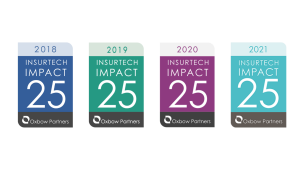Age Reinvented: Some thoughts from Saga’s recent conference
26 July, 2019
This week UK over-50s insurer Saga hosted the conference Age Reinvented: Changing Perceptions of Age.
Age is just a number
The first session of the day focused on ageism and the changing perceptions of age. We learned that as the UK population grows older (by 2037 over 25% of the population will be above the age of 65) and live for longer (1 in 3 children born today will live beyond the age of 100) advancements in technology and medical care mean that the stereotypes traditionally associated with old age will become outdated and inaccurate.
Research shows that the gap between actual and perceived age widens as we get older, with those in their early 70s perceiving their age in the mid 50s. Not only is our older generation feeling younger, they are also the wealthiest (over 50s account from approximately 80% of our wealth) and account for the highest proportion of entrepreneurs.
However, the ability to retain new knowledge (‘crystallised intelligence’) into old age is limited by the ability to quickly access and action this knowledge (‘fluid intelligence’), which begins to decline in our mid 50s. This has implications on decision-making processes as we increasingly rely on experience and gut instinct over facts and analysis as we age.
What this means for insurers is that building propositions around the behaviours and decision-making preferences of customers rather than specific age bands will be key to success. It also means that for staff these trends must be considered as workforces grow older and the next generation of staff are recruited.
Alexa, where is my medication?
In the second session, we learned about the ways in which technology is improving the lives of those living with dementia and those requiring assistance in old age. Dementia is the biggest killer in the UK and affects 20% of those aged 80 and above. There is currently no cure to dementia and by 2025 it will affect over 1 million people in the UK.
In the second session, we learned about the ways in which technology is improving the lives of those living with dementia and those requiring assistance in old age. Dementia is the biggest killer in the UK and affects 20% of those aged 80 and above. There is currently no cure to dementia and by 2025 it will affect over 1 million people in the UK.
Colin Capper, Head of Research Development and Evaluation at Alzheimer’s Society, presented on the development of their innovation platform. The tool enables the wider dementia community (i.e. care workers, family members) to propose and subsequently vote for projects aimed at improving the lives of dementia patients. These ranged from ‘Fidget Widget’ toolkits to increase mental stimulation, to Jelly Drop sweets containing water to improve hydration.
Some innovative technology-enabled solutions were also discussed, the first of which was the Amazon Alexa integration with the MyCare app. The app can be programmed to activate Alexa at certain times of the day to provide reminders to take medication and to provide instruction on where the medication is stored. Another solution having early success in this market is the Elli.Q companion robot. Still in beta testing, the robot can provide realistic conversation as well as enabling video communication with friends and family.
Self-driving care homes of the future
The final session of the day looked at AI and wider industry disruption. First Jay Liu of Digital Dandelion, AI specialists for the medical and insurance industries, presented on the fundamentals required to develop an AI algorithm. In his simplified example, Jay broke the algorithm into three parts (Input, Question and Output) and likened it to a hotel concierge assessing the appearance of an approaching guest before engaging conversation and opening the door. This example was then linked to our earlier discussion on the decision-making preferences of older customers. Jay predicted that successful insurers of the future will aggregate our personal data from all sources to anticipate our needs (just like a great concierge) and provide the most relevant products with little or no input from customers.
The final speaker of the day was Manjit Rana of Rainmaking InsurTech. The presentation covered a variety of interesting connected home applications before looking at wider industry disruption. In the connected home space Majit presented Fing box which can be used to monitor device activity on a domestic wifi network and Verv, the IoT hub that can be used to monitor the electricity usage of your household appliances. Manjit then went on to discuss disruption seen in other industries before looking at a new concept of self-driving hotel suites.
The design by Toronto-based Aprilli, shows a number of self-driving hotel pods that can be moved to destinations of the guest’s choice as well as docking in a central hotel station with traditional amenities such as restaurants and spas. With large hotel chains said to be investing in research for these types of solution, Manjit posed the audience the question… are these the care homes of the future?
Want to know more about the Oxbow Partners Market Intelligence product?
Our Market Intelligence product helps the management of UK insurers understand their company’s performance and market trends (such as the impact of an aging population). Our quarterly reports contain both detailed quantitative and qualitative analysis aligned to each subscriber’s strategy. To find out more, please email us.


